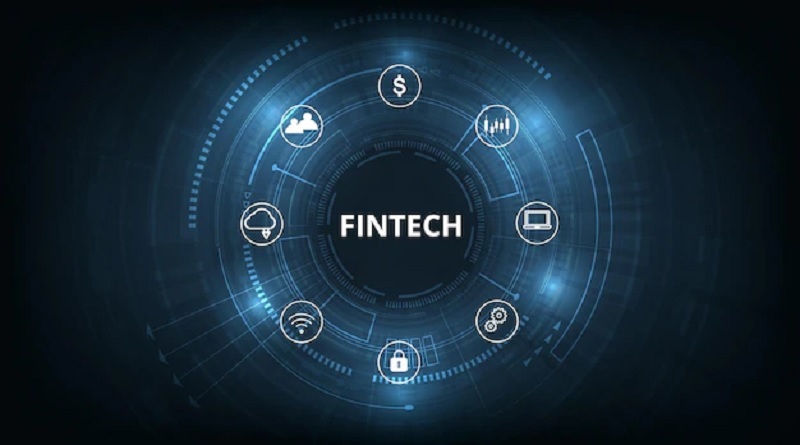How FinTech Is Changing Business (and Bank Accounts)
FinTech describes technology that drives innovation in financial services. It drives automation and enhances online business, giving consumers control and management of their accounts.
Consumers and businesses can use FinTech every day through automated financial transactions and other technological breakthroughs. We’ll explore how FinTech is modernizing and revolutionizing corporate and consumer financing.
What is financial technology?
FinTech is an abbreviation for “financial technology”. At first, people saw FinTech as a counterculture movement of tech entrepreneurs designed to overturn the heavy regulations of traditional banking and lending and resistance to change. strong. It refers to the back-end processes for configuring servers and software applications for the front end of traditional banking institutions. The goal is to make it easier to send and receive money.
Today, FinTech is more difficult to define as its meaning has expanded, as has the availability of financial technology. What has not changed is that FinTech is using technology to disrupt the traditional financial services industry. In short, FinTech is an ever-evolving umbrella term for companies that use technology to automate, modify, or improve financial services for businesses and consumers.
How is FinTech changing business?
Fintech startups and established businesses serve a wide variety of audiences with a multitude of technologies and services. While FinTech benefits many customers, its technology offerings emphasize two key elements:
accessibility and speed.
Here’s what FinTech brings to companies:
Quick access to powerful financial tools. FinTech is a balancing act, giving businesses of all sizes and industries instant access to powerful financial tools. With fast, always-on Internet, big data and mobile connectivity, businesses can easily access complex, feature-rich financial software suites and managed services. In the past, such setups would have cost millions of dollars in fees, equipment, licenses, trained technicians, and dedicated IT staff.
Unrivaled business information. FinTech has created smart information screens with real-time data updates and analysis. With this information at their fingertips, business leaders have unprecedented business intelligence. They can update their marketing quickly to take advantage of favorable terms or switch to a new strategy.
Accessibility and convenience for customers. FinTech services help companies provide new access to their customers. Enterprises can provide customers with an intuitive software interface, positive user experience, fast Internet bandwidth, and more. Clients can access real-time trading and financial information on mobile devices or computers. These innovations have fueled multi-channel payment processing, mobile banking, peer-to-peer payments, and even new ways to evaluate credit applications.
What industries are being disrupted by FinTech today?
Today’s FinTech players are revolutionizing industries like payment processing, asset management, cryptocurrency, and more. Here’s how companies are using FinTech to refine and strengthen their offerings to better serve their customers.
1. FinTech is revolutionizing the payment process.
Payment processing has long been a top goal of FinTech. Consumers want transactions to be as simple as possible while maintaining the highest security standards. The best payment processing companies use the most advanced financial technology to make transactions transparent and secure. Here are some examples:
Square. Square is arguably the most well-known FinTech company in the public eye. Square has made mobile payments popular with its innovative smartphone card reader technology. Read our in-depth Square review to learn more about the fintech behind the service.
bandage. Stripe is Apple’s official partner for mobile payments through Apple Pay. It also leads in mobile-optimized, app-based payment systems. Stripe’s technology integrates with Apple’s iOS-based biometric security and digital wallet technology, allowing millions of consumers to verify into various websites and mobile apps through Face ID or Touch ID on their phones. Stripe is also our pick for the best online payment processor; Read our Stripe review to find out why.
Payfirma. In 2011, became the first company to introduce mobile card reader technology to smartphones in Canada. Since then, the company has grown to become a global processor of omnichannel merchant account services that help businesses accept credit and debit cards online, in stores, and devices mobile.
2. FinTech is disrupting alternative lending.
Alternative lending services offer new approaches to personal lending, providing lending options to more people with a quicker and easier application experience than institutions. Traditional finance can provide.
Here are some examples of FinTech-focused alternative lenders:
Prosperous. Launched in 2005, Prosper was the first peer-to-peer lending marketplace. It has withstood many changes and industry regulations to become a reputable alternative lending company.
Lending Club. LendingClub was launched in 2006, right after Prosper. LendingClub also started as a peer-to-peer lending marketplace and has seen many of the same trials and regulatory challenges in the industry as Prosper. Today it is the largest market of its kind. Obtain. Upstart is a unique personal loan service founded by former Googlers. It takes into account your education and work history in addition to your credit score to provide a more accurate loan rate. Thus, it expands loan opportunities to more people than traditional services.
3. FinTech is making its mark in asset management and automated investment services.
Automated investment services, also known as robot advisors, use machine learning algorithms and large amounts of data to make investing easy and inexpensive, eliminating the cost factor. of human advisors.
Here are two examples:
Improvement. As one of the first automated investing services, Betterment offers a website with a transparent, easy-to-follow process to help new investors get started on their journey to wealth. Improved offer low fees and no account minimums. Wealth ahead. Unlike Betterment, Wealthfront has a $500 minimum but no fees for the first $10,000 managed. It is an attractive proposition for new investors.
4. FinTech supports cryptocurrencies.
Many competing FinTech-focused crypto exchanges are willing to accept your coins, but these two are among the oldest. Their features put them above the crowd.
Kraken. Kraken is a feature-rich cryptocurrency trading marketplace that combines typical exchange functionality with forex-like management and trading. Kraken is also known to have one of the strictest security in the industry and is one of the few exchanges that operates a “dark pool”. Kraken is the first Bitcoin exchange to display prices and trading volumes on Bloomberg Terminal and the first to pass a cryptographic proof-of-stakes audit.
Coinbase. Called the PayPal of Bitcoin, Coinbase is a full-featured cryptocurrency exchange and digital wallet. Coinbase claims to be the most popular way in the world to buy and sell Bitcoin. It traded over $195 billion in cryptocurrencies in 2020 alone.
The Future of Fintech
Many investors wonder what the future holds for FinTech. Kalle Radage, COO of Neptune Digital Assets and former president of Payfirma, believes FinTech startups will continue to explore ways to support digital payments. “Smooth payments and banking mean faster growth for businesses and a better experience for consumers,” he said.
Easy money transfers have inspired many FinTech startups, and it is also a byproduct of FinTech innovation. For example, Bill Clerico founded the online payment service provider WePay to reduce friction between friends when transferring money. And the hugely popular social payments app Venmo (and its enterprise-focused Venmo business service) illustrates just how receptive people are too simple ways to transfer money.
Blockchain technology is another area of FinTech that is expected to grow. Blockchain provides a decentralized, more transparent, and more secure method to track the exchange of money and other assets, including supply chain items, vehicle ownership, and even diamonds.
Other FinTech areas that will continue to grow include commercial transactions and virtual banking, more ways for businesses to connect directly with customers, and faster and more affordable financial services.








